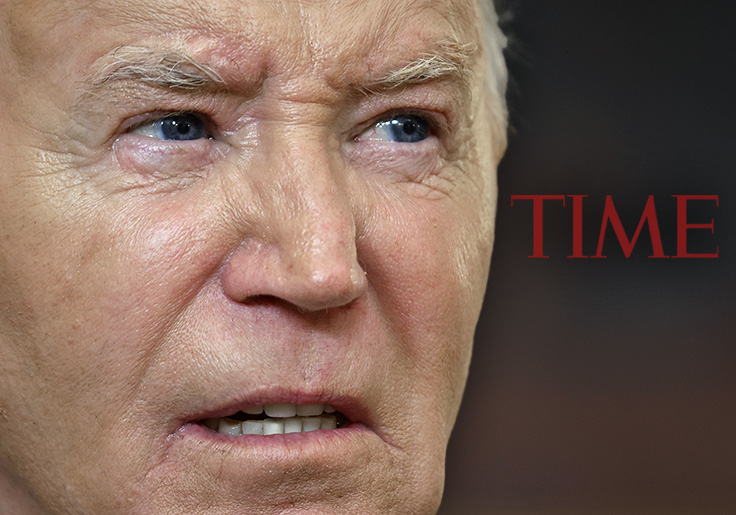Biden Defends Policy During Long Interview With TIME
Embattled President Joe Biden sat down for an extensive interview with TIME Magazine, and it went just as predictably as one might expect. In essence, the interview was a total disaster, embodying quintessential Biden in all its chaotic glory.
Biden’s penchant for repeating inaccuracies was on full display, including the oft-repeated falsehood that inflation was at 9 percent when he took office—a claim even CNN has fact-checked as incorrect. In reality, the year-over-year inflation rate when Biden was inaugurated was about 1.4 percent.
The confusion didn’t stop there. When attempting to defend his new tariffs on certain Chinese imports, Biden managed to mix up Russian President Vladimir Putin with Chinese President Xi Jinping, a mistake TIME had to note. Such mix-ups have become a hallmark of Biden’s public appearances, but they underscore more significant issues when he misstates facts about his policies.
For instance, Biden’s new tariff package, announced on May 18, imposes substantial duties on Chinese electric vehicles (EVs), solar panels, semiconductors, and imported steel and aluminum. Biden explained his rationale:
“If you want to do business in China, you’ve got to have a 51 percent Chinese owner. You’ve got to provide access to all your intellectual property, etc. Sometimes they just outright steal through cyber espionage and other means. And it’s been well-documented and internationally recognized. When you make tactics like these, they’re not competing. It’s not competition. It’s cheating.”
Biden confused Putin and Xi Jinping in his TIME interview — yikes! pic.twitter.com/L0O6oBRwC0
— RNC Research (@RNCResearch) June 4, 2024
While his statement about China’s business practices is accurate, his subsequent assertion that these tariffs won’t impact costs for American consumers is highly questionable. Biden’s insistence that his tariffs would not raise prices, unlike Trump’s proposed tariffs, suggests either a misunderstanding of economic fundamentals or a deliberate misrepresentation.
“No, because here’s the deal. There’s a difference. I made it clear to Putin [Xi] from the very beginning that I’m not, we’re not engaging in. … For example, Trump wants a 10 percent tariff on everything. That will raise the price of everything in America.”
Biden’s logic here falls apart under scrutiny. Any tariff, whether 5 percent, 10 percent, or higher, typically results in higher costs for the end consumer because businesses pass these costs down the line. Basic economics dictates that tariffs increase the price of imported goods, which then leads to higher prices for consumers.
In fact, Biden’s tariffs are quite substantial: a 100% tariff on electric vehicles, 25% on EV batteries, 50% on solar panels and semiconductors, and 25% on steel, aluminum, and ship-to-shore cranes. There are also tariffs ranging from 25% to 50% on certain types of medical equipment. Despite his claims, these tariffs will undoubtedly impact consumer prices, much like any tariffs would.
Furthermore, Biden’s use of China’s 51 percent ownership requirement as a justification for these tariffs is a red herring. This ownership issue is more about the complexities of doing business in China rather than the direct economic impacts of tariffs on U.S. consumers.
Both Trump and Biden seem to miss the mark on the fundamental nature of tariffs. When the U.S. imposes tariffs, U.S. businesses pay import taxes to the government on goods bought from abroad. The economic burden can then fall on various entities, including foreign sellers (if they lower their prices to absorb some of the tariffs) or U.S. consumers (if businesses raise prices to offset the tariff costs).
Biden’s habitual inaccuracies, combined with his frequent public confusion, continue to undermine his credibility. His handling of the TIME interview was no exception, reinforcing the ongoing concerns about his grasp of policy details and the overall impact of his decisions. As we move closer to the next election, these issues are likely to remain at the forefront of political discourse.

